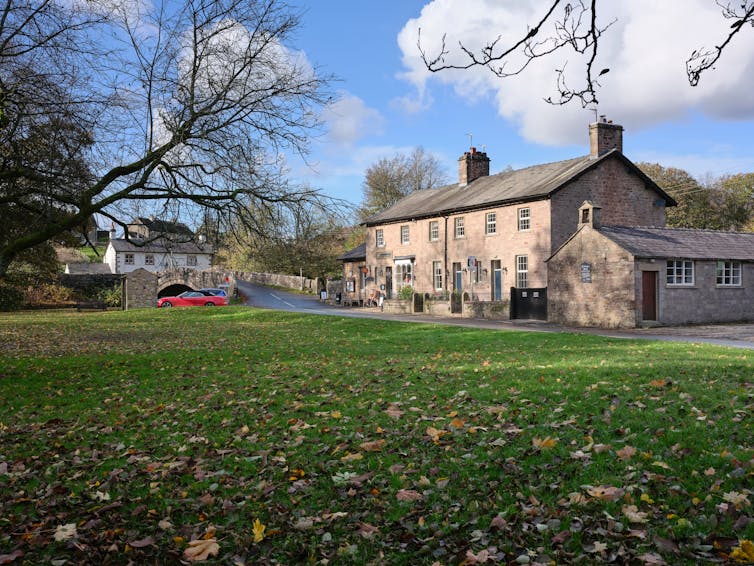What connects an ex-miner and lifelong republican, who once manned the protest lines at Orgreave, with King Charles III? The surprising answer, as the Guardian reported, is that the ex-miner’s estate now forms part of a fund which generates private income for the monarch.
The reason is the legal principle of bona vacantia. This is loosely translated as “ownerless goods” and refers to a process through which the estates of people who die without heirs in England and Wales are claimed by the crown.
The principle of bona vacantia operates when a person dies in England and Wales without leaving a valid will disposing of all of their assets and there is no heir to their estate under the intestacy rules. These rules, set out in the Administration of Estates Act 1925, set out the classes of people who can inherit the property of an intestate (or partially intestate) person.
These classes are ranked and then gone through in order to see if an heir can be found. In broad terms, no surviving relative further away from the deceased than a first cousin can inherit. Remoter family members are generally excluded. When no one closer than a cousin can be found, the unclaimed part of the estate (the bona vacantia) passes to, and is collected by, the crown.
Most of these estates are claimed by the Treasury solicitor, the government legal department which handles the administration of the estate and then passes the surplus to the government for its general expenditure.
However, the estates of people who died resident in the historic County Palatine of Lancaster (including greater Manchester, Merseyside, Lancashire and the Furness area of Cumbria) pass under the bona vacantia rules to the Duke of Lancaster. That is, the current reigning monarch, King Charles.
The estates collected by the Duchy of Lancaster are incorporated into its private estate of land, property and assets, with the function of providing private income for the monarch.
This is an extremely ancient power, dating back to a 1377 grant made by Edward III to John of Gaunt when he was Duke of Lancaster. Today, it is part of the Administration of Estates Act 1925.
A similar rule applies to the estates of those dying within the county of Cornwall. These estates pass to the Duke of Cornwall, who is also the Prince of Wales, Charles’s son, William.
Although many of these unclaimed estates are not large, the aggregate sums received by the duchies are considerable. The Guardian reports that over the past ten years, the Duchy of Lancaster alone has collected around £61.8 million.
The Treasury solicitor and the two duchies will advertise for any entitled relatives to come forward, and will make transfers to those entitled under the heirship rules. All three also have a discretion to make payments from the estate to those who may have a legitimate claim on it otherwise than through heirship, particularly under the provisions of the Inheritance (Provision for Family and Dependants) Act 1975.
These include carers for the deceased person, or cohabitants. Some of the remainder is used for investment and to maintain duchy assets, and the surplus given to charity.
A controversial change apparently benefits King Charles
Many people are broadly aware, and broadly satisfied, that if they die without heirs, their property will go to the state in the form of the crown. However, when the Law Commission last consulted on the principles of intestacy and bona vacantia in 2011, some public unease about the point was detected.
A significant minority thought that the rule was anachronistic and that unclaimed assets should be given directly to charity. The Law Commission did not take this up, in part because the latest available reports and accounts at that time showed that the net proceeds of bona vacantia in both duchies passed entirely to charity.

The Guardian’s reporting has now revealed that there was an apparent significant shift in the administration of the Duchy of Lancaster’s funds in 2020. One particularly controversial change has been the alleged use of money to improve historic property within the Duchy’s portfolio, which is then rented out for profit.
The paper has also raised questions about how much of the duchy’s income is currently being paid to charitable causes, as this appears to have dropped.
There is the further question of whether it is fair, or relevant, that the estates of those who happen to die resident in Lancashire or Cornwall should become private assets of the monarch or his heir, while those who die resident elsewhere have their estates passed to the British state more generally.
Whatever the resolution of these issues may be, there is a clear message for those who strongly wish their estates to go to charity and not to the crown: make a will.
All wills can be drafted so that if there are no living heirs left, the estate can be given to a charity of the deceased’s choice as a fallback. Many charities offer will writing services which can help. When it comes to legacies, it’s essential to plan ahead.
Sheila Hamilton Macdonald does not work for, consult, own shares in or receive funding from any company or organisation that would benefit from this article, and has disclosed no relevant affiliations beyond their academic appointment.
This article was originally published on The Conversation. Read the original article.







